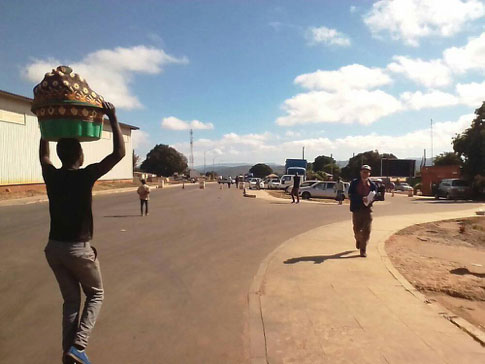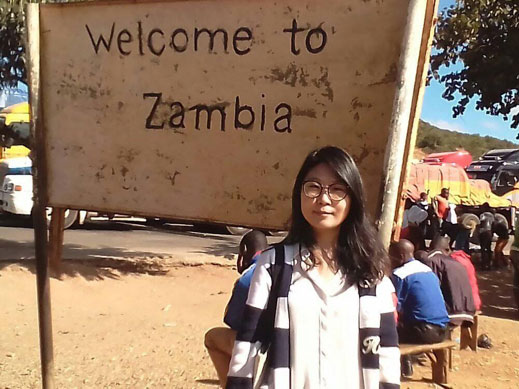Home » News » Citizen’s Attitudes Toward Taxation in Malawi
Citizen’s Attitudes Toward Taxation in Malawi
Posted by anderc8 on Monday, November 13, 2017 in News, TIPs 2016.
Written by SangEun Cecilia Kim, Vanderbilt University PhD student
This summer, I received the Trans-Institutional Programs (TIPs) Student Grant to conduct field research on the public attitude toward taxation in Malawi. I chose this topic and field site for a variety of reasons. I worked in Malawi for a year as a field research assistant before joining the Political Science PhD program at Vanderbilt. While working there, I became familiar with the country’s tax system, and curious about how people think about it. However, I realized that not much research has been conducted on taxation in the context of developing countries. Therefore, I chose to study this very topic in the context with which I was most familiar. I spent two months in Malawi, from the beginning of June to the end of July. This was my first experience initiating my own project. During the first two weeks, I setup the project. This included finalizing my survey, translating it into local languages (Chichewa and Chitumbuka), getting approval from the IRB committee in Malawi, hiring and training a local research assistant and planning for logistics. Then, I fielded my survey for the rest of my stay.

The borders between Malawi and other countries are very porous. Locals freely come and go to the market on the other side.
To understand the general public opinion on taxation in Malawi, I conducted my survey in one major city and one small town near the North, Central and Southern regions of Malawi. I visited three big cities and three small towns and surveyed about 10 to 15 people in each place. I also visited villages and recruited rural inhabitants to participate. While conducting the survey, I met a variety of people from different regions and with various occupations. In cities and towns, I surveyed employees and managers, small business owners, shop employees, street vendors, a public official and even a black marketer. In villages, the occupation does not vary much as the majority of people are farmers. While most are subsistence farmers, there are some commercial farmers who cultivate tobacco – the main cash crop in Malawi. I also interviewed traditional chiefs in rural villages, including group village headmen, village headmen and chief’s councilors.
My survey included a battery of questions about five prominent hypotheses on the determinants of attitudes toward taxation. The economic deterrence theory posits taxpayers’ attitude as a function of a cost and benefit; the benefit of not paying taxes increases if a tax rate is high, whereas the cost of not paying taxes increases if the probability of getting caught and punished is high. The second hypothesis, fiscal exchange theory, argues that that beneficiaries from a government project are more likely to comply with taxation. Third, the comparative treatment theory claims that people who benefit more than the others from government treatment show higher compliance toward taxation. The fourth, the government legitimacy theory, argues that taxpayers are more likely to pay taxes if they consider the government is legitimate. Lastly, social influence theory suggests if paying taxes is set in stone as a social norm, tax compliance is high.
I found that the most common factor shaping anti-tax attitude (thus tax evasion propensity) is poverty. People do not have enough money to send their children to a school and go to a hospital. I also found that regional ethnic composition matters. Many people answered that the president favors his own ethnic group or region as he provides more public goods and hires more into public official positions. While some did not regard ethnic favoritism as a problem (because it is natural political phenomenon in Malawi), others defined it as the country’s biggest challenge. The latter group is less likely to comply with taxation.
While I cannot assert which of the five hypotheses is most compelling with my preliminary research, I have gained a better understanding of the importance of economic circumstances and the widespread perception of ethnic favoritism, which could affect attitudes toward taxation. I acknowledge that my sample is not nationally representative of Malawi, but this survey gave me a good exploratory understanding of the general public opinion on taxation. I hope this serves as a stepping stone for a future research project.
When I started the PhD program in Vanderbilt, I did not expect to go back to Malawi so soon. Thanks to the TIPS grant, however, I was able to not only return to the field, but also conduct my own research. If you have any questions about what I mentioned or want to hear about my experience, please feel free to leave questions or comments in the space provided below.


